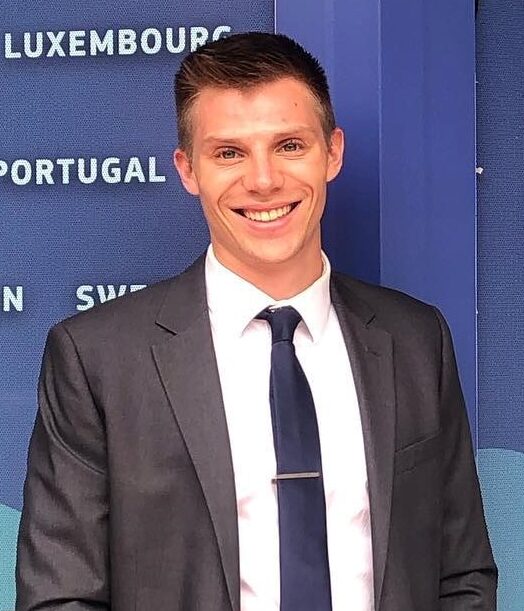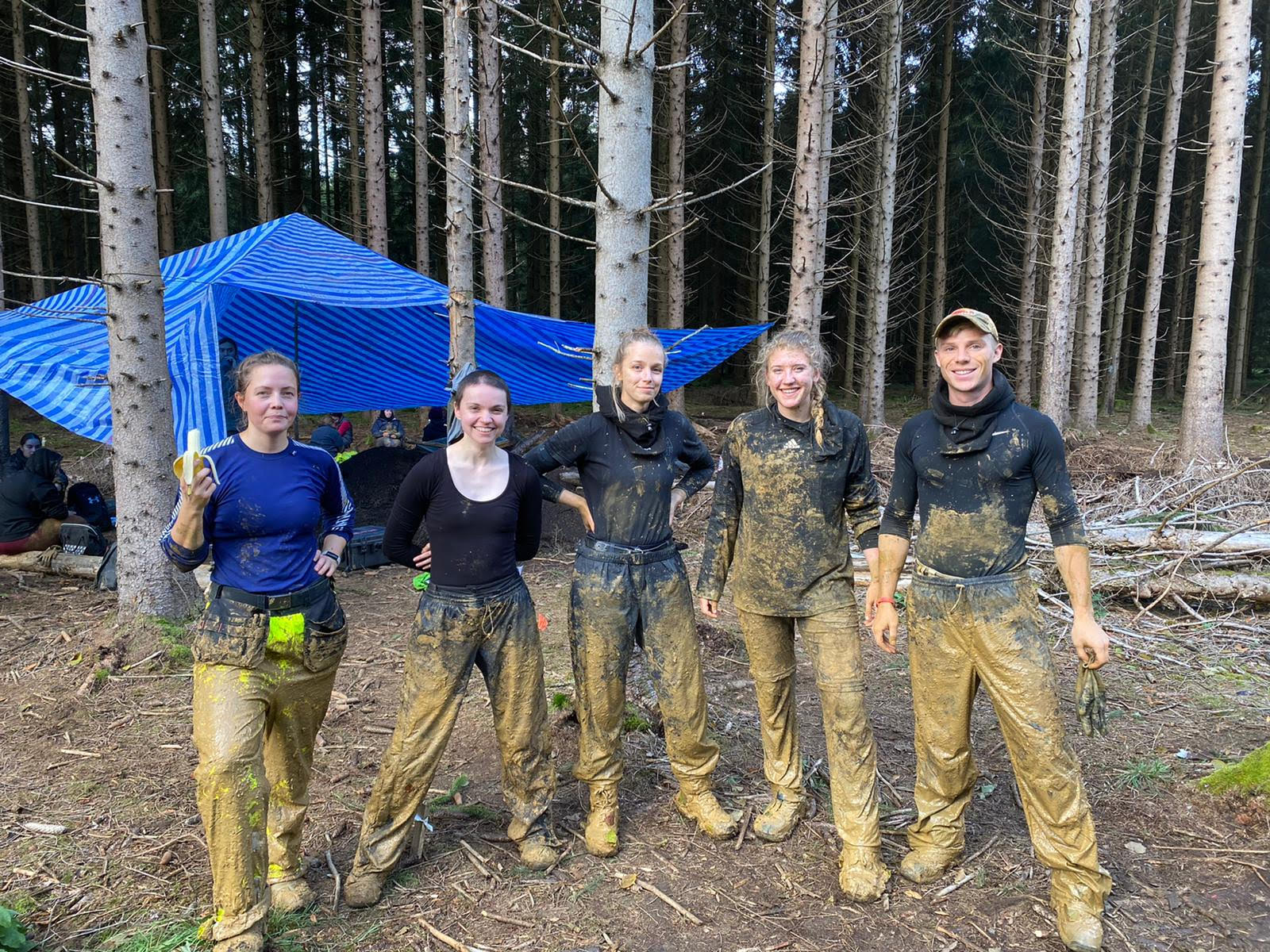In December of 1944, as the cloud cover lifted in the early days after the Battle of the Bulge, a B26 bomber was shot down in Belgium. A Belgian child who witnessed the plane crash collected a few things from around the crash site and put them in a shoebox.
 Seventy-four years later, Tristan Krause and his teammates from the University of Wisconsin Missing in Action Recovery and Identification Project show up, digging around the crash site, trying to locate the remains of the pilot.
Seventy-four years later, Tristan Krause and his teammates from the University of Wisconsin Missing in Action Recovery and Identification Project show up, digging around the crash site, trying to locate the remains of the pilot.
“This guy comes up with a shoebox and it’s got all of these plane parts, but it also has two things that are really important,” Krause said. “One is the epaulets from one of the enlisted men on the flight. The other one is a wedding ring and our guy is the only married guy on the flight.”
For Krause, who had just graduated with his bachelor’s degree in 2018 from the University of Wisconsin-Madison, this was an example of how he wanted to combine his passion for history and desire to serve his community.
“This is more than history. This is about somebody getting closure back at home.”
Krause is currently getting his PhD in history at the Texas A&M University with the goal of working full-time for the Defense POW/MIA Accounting Agency (DPAA), an organization that recovers the remains of American military members. The DPAA brings together teams of historians, archeologists, geneticists, anthropologists and more to help find, identify, and bring home missing American soldiers.
Krause said that he got to work with DPAA over the summer and that he loves the interdisciplinary nature of the work that utilizes his skills as a historian.
“The historian leads the archeologist to the site. The archeologist does the excavation and the anthropologist does the identifications,” Krause explained. “It’s really battlefield detective work and no other aspect of history has really given me that cross-discipline approach yet.”
But he also saw how this role also allows him to be a historian while also giving back to his country.
“I learned I could serve my nation as a historian by bringing closure to others by helping bring these people home that gave the ultimate sacrifice,” Krause said. “This is a tactile, tangible form of how I can apply history and do good in the world. To do that work with the DPAA, I need to have a PhD.”
Krause credits his parents for fostering his passions of history and service. He said some of his earliest core memories are watching Walter Cronkite documentaries about World War II with his dad.
Both of his parents have advanced degrees, his dad a biologist for the State of Wisconsin and his mom, a recently retired ecologist for the United States Forest Service for 30 years. He is proud of the work his mom did, monitoring and helping mitigate climate change in Wisconsin. He said both of his parents are smart and could have done anything, but they chose to do work that would help their communities. Krause credits them for instilling the belief of doing work for the greater good.

Krause, right, with fellow teammates at a site.
“There’s this implicit idea that if you go get an advanced degree, if you get all these public resources given to you, it’s understood that you give that back. That you were going to be a public servant in some way,” Krause said.
Krause was first exposed to military recovery efforts by an undergraduate history course about the Wisconsin National Guard who went missing in New Guinea during WWII. Krause saw how he could use history to help his community.
“We not only had to research the context of their losses, but try and actually put together case files,” Krause said. “That was the most rewarding experience I’ve ever had in history up until now.”
Currently his research is focused on the U.S. military’s mission of recovering missing American remains in Europe after WWII. He said America has a long history of recovering remains, even going back to the Civil War, but there was a turning point after WWII where it became an expectation. Krause said that this practice is unique to Americans, compared with other countries involved in the European theatre. He wants to discover why this practice came to be and why this mission is still happening today.
“You can’t stand on the crater of a plane crash in France or in Germany and help bring someone home and not ask why we do this now and how did we do this before,” Krause said. “Having done this in the field several times, I came to really wanting to dig into that past.”
